Understanding the cost of fixing an AC in a car can be a real headache. From minor leaks to complete compressor failures, various factors influence the final bill. This guide will walk you through the common AC problems, diagnostic procedures, repair options, and estimated costs, empowering you to make informed decisions about your car’s AC repair.
Common Car AC Problems and Their Associated Costs
Several issues can plague your car’s AC system. Identifying the root cause is crucial for accurate cost estimation. Here’s a breakdown of common problems:
- Refrigerant Leaks: One of the most frequent culprits, refrigerant leaks can occur in various parts of the system, including hoses, connections, and the evaporator. The cost of fixing a refrigerant leak can range from $100 to $400, depending on the location and severity of the leak.
- Compressor Failure: The compressor is the heart of your AC system. A failing compressor can lead to complete system shutdown. Replacing a compressor is a significant expense, typically ranging from $500 to $1,200, including parts and labor.
- Condenser Issues: The condenser, located at the front of the vehicle, releases heat absorbed by the refrigerant. Damage from road debris or corrosion can lead to leaks or reduced efficiency. Condenser replacement costs typically fall between $300 and $800.
- Evaporator Problems: Located inside the dashboard, the evaporator absorbs heat from the cabin air. Leaks or blockages in the evaporator can significantly reduce cooling performance. Repairing or replacing an evaporator can cost anywhere from $500 to $1,500 due to the labor-intensive nature of accessing it.
- Electrical Issues: Problems with wiring, fuses, relays, or the AC control module can also disrupt the system’s operation. Diagnosing and repairing electrical issues can range from $100 to $400.
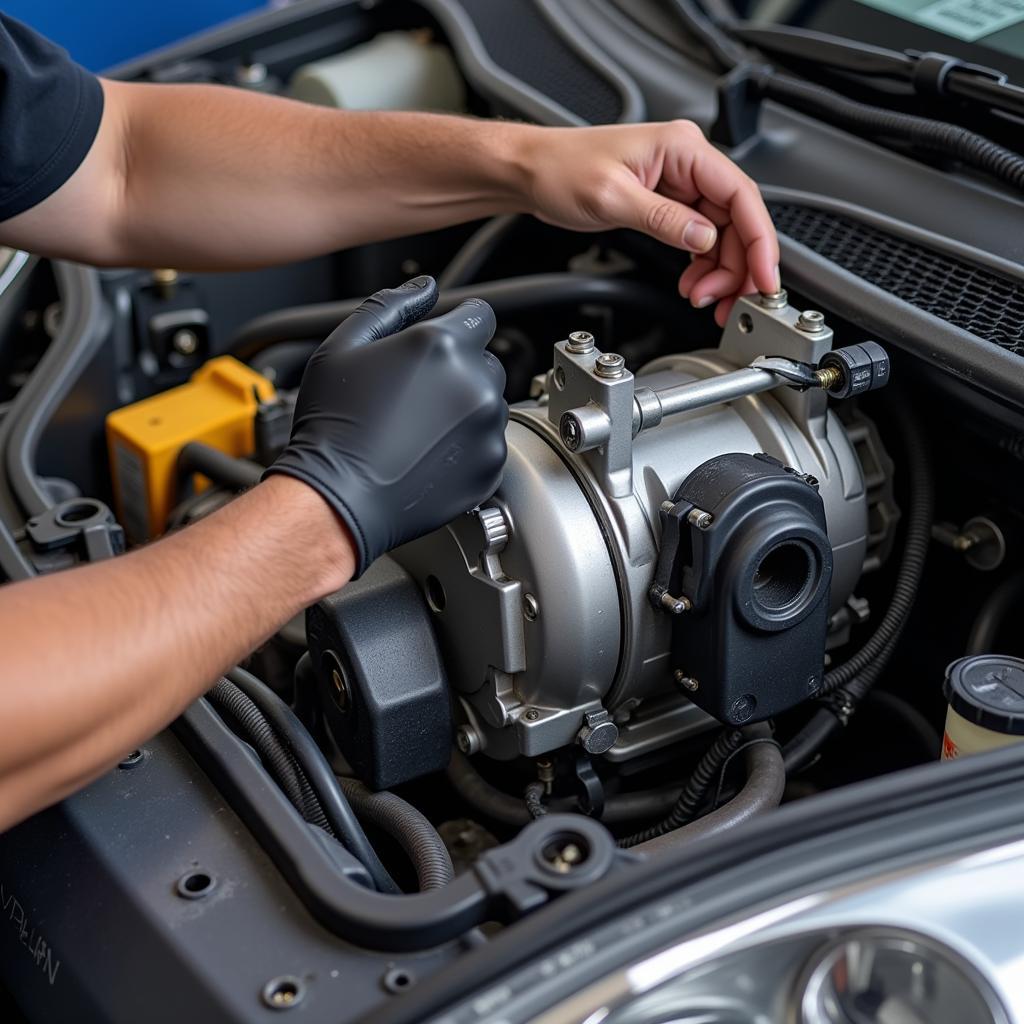 Car AC Compressor Replacement Cost
Car AC Compressor Replacement Cost
Diagnosing Your Car’s AC System
Before any repairs, a thorough diagnosis is essential to pinpoint the exact issue. This typically involves:
- Visual Inspection: Checking for obvious leaks, damage, or loose connections.
- Pressure Test: Measuring the refrigerant pressure to detect leaks or identify a faulty compressor.
- Leak Detection: Using specialized dyes or electronic detectors to pinpoint the source of refrigerant leaks.
- Electrical System Check: Testing fuses, relays, wiring, and the control module for proper function.
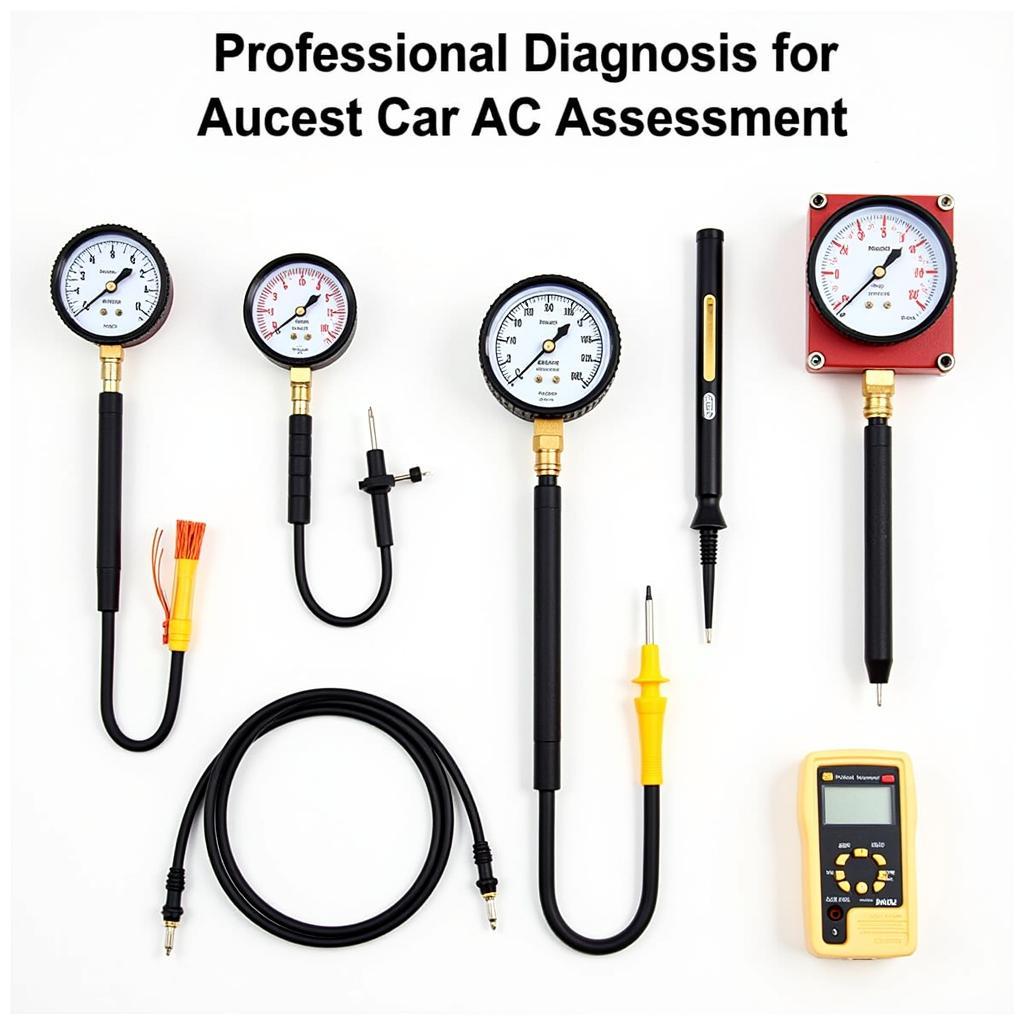 Car AC System Diagnostic Tools
Car AC System Diagnostic Tools
How Much Does it Cost to Recharge Car AC?
Recharging your car AC, often referred to as “re-gassing,” typically costs between $100 and $300. This involves evacuating the old refrigerant, checking for leaks, and then refilling the system with the correct amount of new refrigerant.
Cost of Fixing an AC in Car: Factors Affecting the Price
Several factors can influence the final cost of fixing an AC in car:
- Make and Model: AC components for luxury or imported vehicles tend to be more expensive.
- Labor Rates: Labor costs vary depending on the location and the shop’s hourly rate.
- Parts Quality: OEM (Original Equipment Manufacturer) parts are generally more expensive than aftermarket options but often offer better reliability and longevity.
- Complexity of the Repair: Accessing and repairing certain components, like the evaporator, can be more labor-intensive, increasing the overall cost.
DIY vs. Professional Repair
While some minor AC maintenance tasks, like checking fuses or adding refrigerant (with proper equipment and knowledge), can be done at home, more complex repairs are best left to professionals. Improper handling of refrigerant can be harmful to the environment and your health.
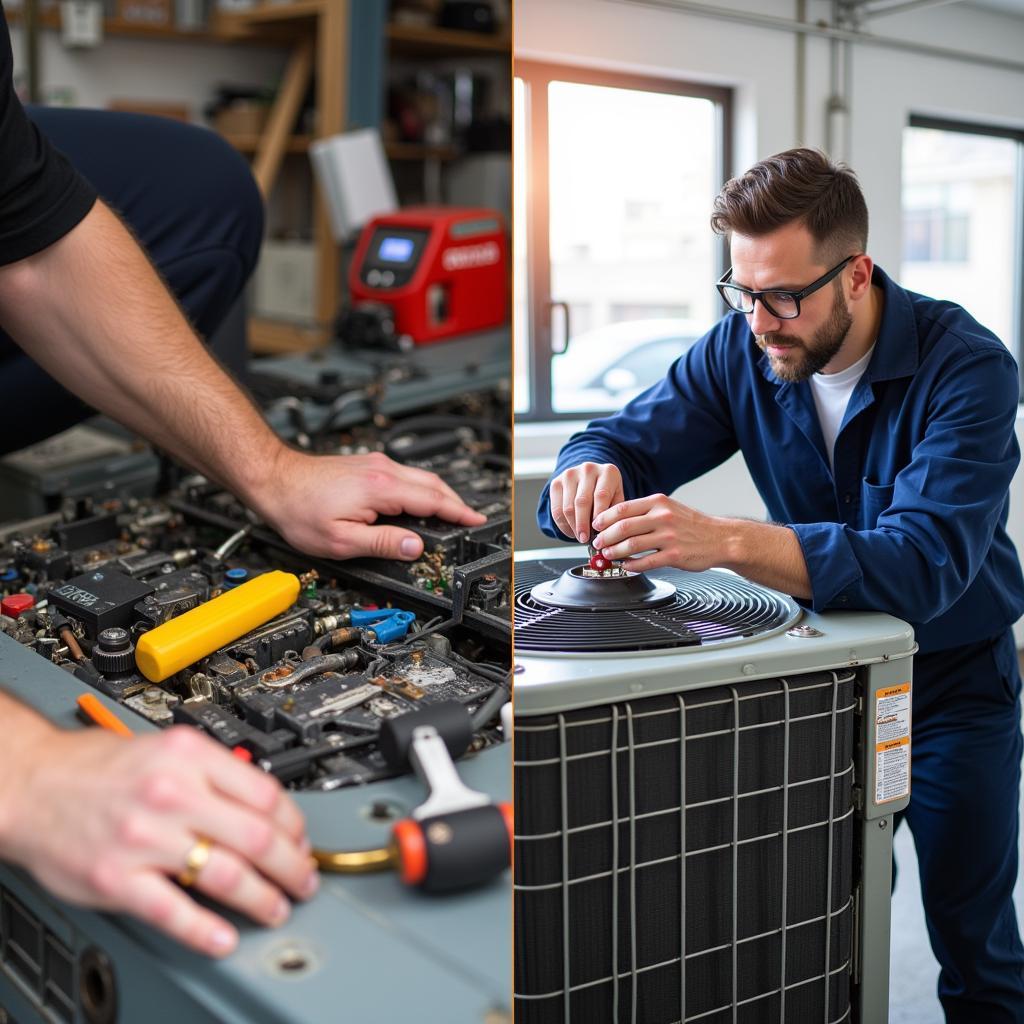 DIY vs. Professional Car AC Repair
DIY vs. Professional Car AC Repair
Keeping Your Car AC in Tip-Top Shape
Regular maintenance can prevent costly AC repairs down the road. Here are some tips:
- Annual AC Service: Have your AC system inspected and serviced annually by a qualified technician.
- Check for Leaks: Regularly inspect for any signs of leaks, such as oily residue or refrigerant stains.
- Run the AC Regularly: Even during colder months, run your AC for a few minutes every month to keep the system lubricated and prevent seals from drying out.
Conclusion: Making Informed Decisions about Your Car’s AC Repair
Understanding the cost of fixing an AC in car requires considering various factors, from the specific problem to the chosen repair solution. By being informed about potential issues, diagnostic procedures, and estimated costs, you can make sound decisions and keep your car cool and comfortable. Need help with your car’s AC? Contact AutoTipPro at +1 (641) 206-8880 or visit our office at 500 N St Mary’s St, San Antonio, TX 78205, United States.
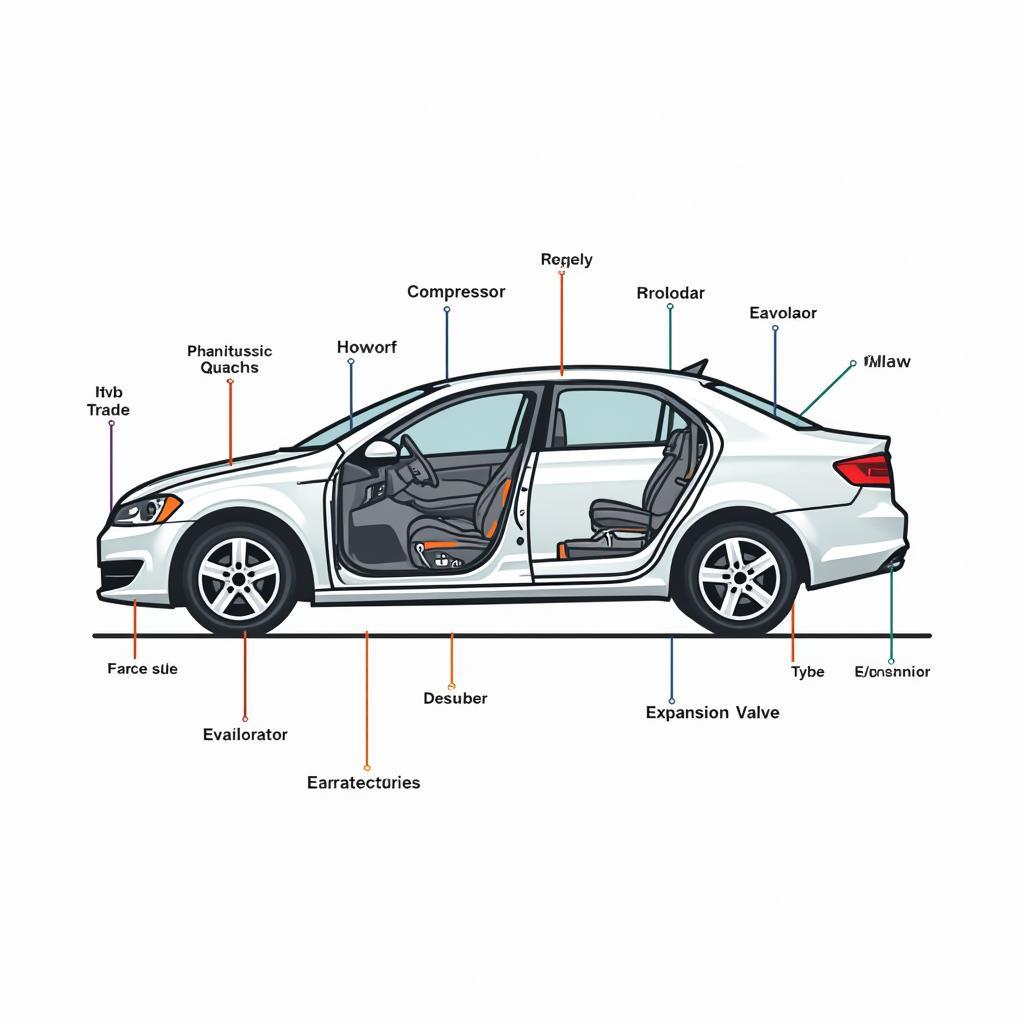 Modern Car AC System Components
Modern Car AC System Components
FAQs
- How often should I recharge my car’s AC? A properly functioning AC system shouldn’t require frequent recharging. If you need to recharge it often, there’s likely a leak that needs to be addressed.
- Can I add refrigerant to my car’s AC myself? While it’s technically possible, handling refrigerant requires specific knowledge and equipment. Improper handling can be harmful to the environment and your health. It’s best to leave this to a professional.
- What are the signs of a failing AC compressor? Common signs include loud noises from the compressor, warm air blowing from the vents, and a noticeable decrease in cooling performance.
- How can I tell if my car’s AC has a leak? Look for oily residue or refrigerant stains around AC components, or a noticeable decrease in cooling performance.
- Is it expensive to fix a car AC leak? The cost depends on the location and severity of the leak. Minor leaks can be relatively inexpensive to fix, while more complex leaks can be significantly more costly.
- How long does it take to fix a car AC? The repair time varies depending on the specific issue. Simple repairs can be done in a few hours, while more complex repairs may take a day or more.
- How can I prevent my car’s AC from breaking down? Regular maintenance, including annual inspections and servicing, is the best way to prevent costly AC repairs.





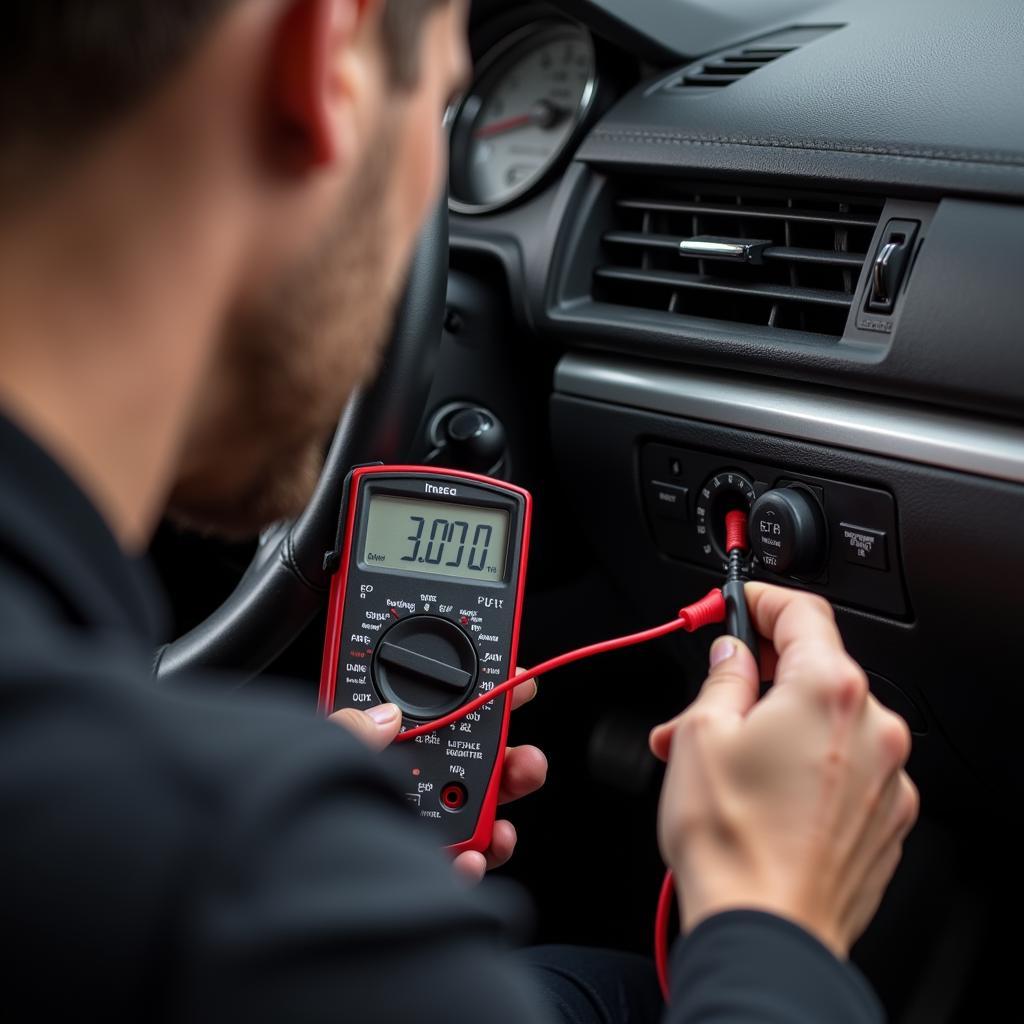
Leave a Reply